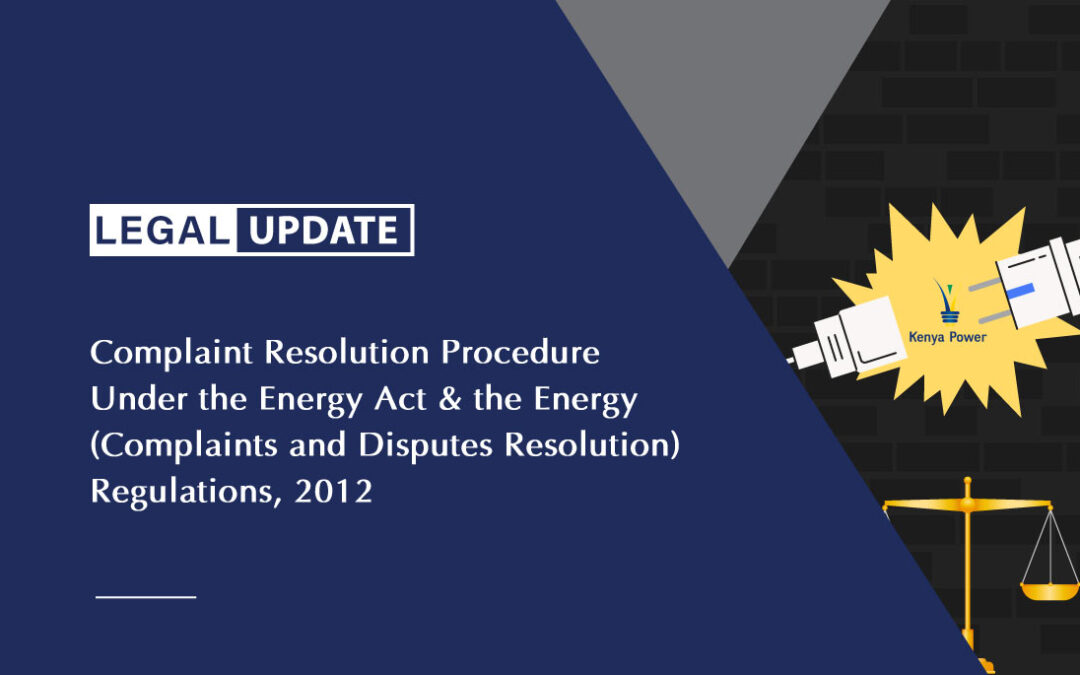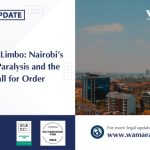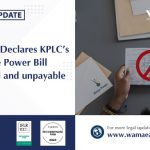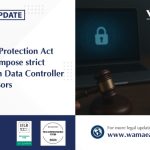A. INTRODUCTION
- The Energy Act has laid out the necessary guidelines for settling complaints regarding electrical energy consumption. The major energy sector entities established under the Energy Act of 2019 (hereinafter the ‘Act’) that deal with complaints from electricity consumers are the Kenya Power and Lighting Company (KPLC); Energy and Petroleum Regulatory Authority (EPRA); and the Energy and Petroleum Tribunal (EPT). In relation to ordinary consumers, these entities deal with disputes ranging from irregular electric charges; illegal or improper use of electrical energy; alleged defects in any apparatus or protective devices and the use of unsuitable apparatus.
- Section 159 of the Act provides that in instances of defective meters and more so where dispute arises as to recalculation of electrical energy consumed by a consumer, such dispute shall be referred to EPRA for determination. However, there exists an in-house complaints mechanism within Kenya Power & Lighting Company (KPLC) as an approved licensee which ought to be exhausted first. This is in light of Regulation 5 of Energy (Complaints and Disputes Resolution) Regulations, 2012 which stipulates that a power provider shall establish procedures for handling complaints and which shall be approved by EPRA.
B. EXHAUSTION OF INTERNAL REMEDIES
- This doctrine is now of esteemed juridical lineage in Kenya. Our courts are replete with jurisprudence on the doctrine of exhaustion of remedies.
- In dismissing a premised on exorbitant KPLC bills, the court in Dhow House Limited v Kenya Power and Lighting Company (Constitutional Petition E058 of 2021) [2022] KEHC 11840 (KLR) (19 August 2022) (Ruling), held:
There is nothing to show that the forum established under the enabling statute cannot resolve issues relating to a disputed bill. In fact, the said form is the best suited fora to determine how the bill was arrived at. It has the benefit of the required expertise. The attempt to describe a disputed bill as a constitutional question is to say the least a mockery of the Constitution.
- To this end, we find that the Courts ought to be a fora of last resort and not the first port of call the moment a storm brews. The courts demand that the inhouse dispute resolution mechanisms should be followed before invoking powers of the courts.
C. KPLC IN-HOUSE COMPLAINTS MECHANISM
- The KPLC has formulated a complaint handling mechanism which entails;
- Writing a formal complaint to the Regional Manager highlighting the dispute in finer details.
- The Regional Manager ought to respond to the complaint within 3 days of its receipt. (Pursuant to the KPLC Customer Complaints Handbook)
- Suffice to note, if a consumer is not satisfied with the decision made or where a response is not elicited, one can proceed to file a reference at the Energy & Petroleum Regulatory Authority (EPRA). The same is reiterated under Regulation 7 (1) which gives a complainant the leeway to approach the Authority if dissatisfied with the decision of the energy provider.
- Thereafter, if the decision of the Authority is not satisfactory, one can proceed to lodge an appeal with the Energy Tribunal. In essence, the doctrine of exhaustion of internal remedies should be followed.
- Pursuant to Section 160 of The Energy Act 2019, EPRA has the mandate of approving a licensee’s complaint handling and dispute resolution procedures. Some disputes such as metering problems that occasion inaccurate or inflated billings can be handled by KPLC’s internal dispute resolution mechanisms and do not have to end up at EPRA. This is because power distributors bear the responsibility of ensuring the integrity of the meters.
- In their Complaints Handling Handbook, KPLC state that whenever customers contact Kenya Power with complaints, they shall either respond to the customer conclusively or provide a reference number for follow-up purposes within the stipulated resolution timelines.
- When the complaint is done in writing, the letters should be addressed to the respective Regional Manager. In case there is need for detailed investigations, the handbook states that KPLC will inform the customer immediately in writing. Every written complaint will be acknowledged within two days of receipt.
D. COMPLAINT HANDLING PROCESS
- The chart below highlights the process KPLC uses to handle complaints from its customers as approved by EPRA.
Complaint receipt and registration
If the nature of complaint is not complex the problem is resolved and the customer is notified.
If the problem requires further investigation, it is logged in the relevant system i.e. either in CMS or IMS and assigned to the concerned section and the customer is assigned a reference number.
The technical team picks up the complaint for analysis and resolution.
Once the complaint is resolved, the system is updated with resolution details.
Within 3 days the customer gets a response from Kenya Power for in CMS complaints.
- It is KPLC’s position that they will be in communication with the customer at every stage of dispute resolution.
E. COMPLAINT HANDLING PROCESS
- KPLC manual states that each written complaint or correspondence will be responded to within 3 days. However, if complaints are not addressed to their satisfaction and requires redress, the chart below shows where customers can escalate complaints for assistance:
FIRST LEVEL
County Business Managers and Customer Experience OfficersSECOND LEVEL
Regional Managers (Regional Dispute Resolution Committee)THIRD LEVEL
General Managers (Corporate Dispute Resolution Committee)FOURTH LEVEL
MD & CEO’s OfficeDISPUTE RESOLUTION LEVEL
Energy and Petroleum Regulatory Authority for ArbitrationDISPUTE RESOLUTION LEVEL
Energy and Petroleum Tribunal to handle any appeals to the EPRA’s decision
F. EPRA COMPLAINT PROCEDURE
- The Energy and Petroleum Regulatory Authority (EPRA) is a state corporation established under the Energy Act, 2019. The Authority is the energy sector regulatory agency responsible for economic and technical regulation of electric power, renewable energy, petroleum and coal subsectors.
- Section 9 as read with Section 10 of the Energy Act establishes EPRA whose mandate includes, inter alia, to;
- Regulate generation, importation, exportation, transmission, distribution, supply and use of electrical energy with the exception of licensing of nuclear facilities.
- Further, Section 159 of the Act stipulates that if any dispute arises out of recalculation of electrical energy consumed by a consumer due to a defective meter or as to interference with any meter, such dispute shall be referred to the Authority for determination.
- Similarly, Section 160 of the Act provides that where a dispute arises as to charges or billing on meters, such a dispute shall be referred to the Authority.
- Regulation 7 (2) further stipulates that a complainant shall refer the dispute to the Authority in Form-S1 in the second schedule. Upon receipt of the dispute, the Authority shall appoint a mediator who will assist the parties to reach a settlement within 30 days.
- Notably, if the dispute is settled, an agreement indicating the same shall be filed with the Authority within 5 days and shall be final and binding on both parties. However, if the dispute is unsettled, the complainant may appoint an advocate to represent him before the Authority. Suffice, Section 23 of the Act provides that a decision by EPRA ought to be made in writing within sixty days of receipt of the request. The decision shall be communicated to the parties within seven (7) days of making the decision.
- Finally, if a party is not satisfied with the decision of the Authority, such an aggrieved party shall, pursuant to section 24 of the act, proceed to lodge an appeal with the Energy & Petroleum Tribunal within 30 days of delivery of the order or decision.
G. ENERGY & PETROLEUM TRIBUNAL
- EPT has been established under Section 25 of the Energy Act. Its mandate has been espoused under section 36 and which includes, inter alia;
- Appellate jurisdiction over the decisions of the Authority and any licensing authority and in exercise of its functions may refer any matter back to the Authority or any licensing authority for reconsideration.
- To grant equitable reliefs including but not limited to injunctions, penalties, damages, specific performance.
- To hear and determine matters referred to it expeditiously.
H. APPROACHING THE COURT VIA A CONSTITUTIONAL PETITION
- The Constitution of Kenya is a safe haven for an energy consumer whose rights and freedoms have been violated by the KPLC. The definition of customer was captured in Karnataka Power Transmission Corporation v Ashok Iron Works Pvt Ltd (2009) 3 SCC 240, where the Supreme Court of India arrived at a finding that “an electricity consumer falls within the definition of a ‘consumer’ and that the supply of electricity is indeed a service, if not provided in time, would constitute a service deficiency.”
- Therefore, a constitutional petition can be an alternative route, a riskier one, other than following procedures under EPRA and Energy Tribunal.
- This procedure has been applied before as evidenced in the following case law such as Wekesa v Kenya Power and Lighting Company Ltd & another (Constitutional Petition 12 of 2021) [2023] KEHC 2900 (KLR) and Alan E. Donovan V Kenya Power & Lighting Company [2021] Eklr
I. CONCLUSION
- Flowing from the foregoing analysis is that disputes in relation to erroneous electrical bill charges, faulty metering and disconnection of electricity will be handled first at the institutional level before being referred to the courts. The licensed electricity distributor is the first go-to entity, in our context; to the monopolistic KPLC, thereafter to EPRA and finally to the EPT. The court will be petitioned as the last resort when a customer can lay out clearly that KPLC and EPRA have failed to adhere to the statutory obligation under the Act of resolving the disputes amicably.
This article is provided free of charge for information purposes only; it does not constitute legal advice and should be relied on as such. No responsibility for the accuracy and/or correctness of the information and commentary as set in the article should be held without seeking specific legal advice on the subject matter. If you have any query regarding the same, please do not hesitate to contact Real Estate & Securitization Department at litigation@wamaeallen.com
 Loading...
Loading...
About the author
Lawrence M. Ongeri specializes in Civil Litigation, Commercial Litigation, Constitutional Interpretation and Alternative Dispute Resolution.
Lawrence has gained his experience in the arena of Dispute Resolution by acting for and advising both local and international clients in civil, constitutional and commercial disputes. Over his years of practice, Lawrence has engaged in novel, complex and high value litigation before the Court of Appeal, High Courts, Magistrates’ Courts as well as Quasi-Judicial Tribunals.
Denis Mutugi specializes in Commercial Litigation and Alternative Dispute Resolution.
Denis graduated with a Bachelor of Laws, LLB (Hons) from The University of Nairobi in 2021 and was admitted to the Roll of Advocates of the High Court of Kenya in the year 2023.
Denis has amassed a considerable wealth of experience in conducting legal research on various complex legal matters touching on Commercial, Insurance, Employment and Insolvency law and bankruptcy.
-
George Nadiohttps://wamaeallen.com/author/george-nadio/













